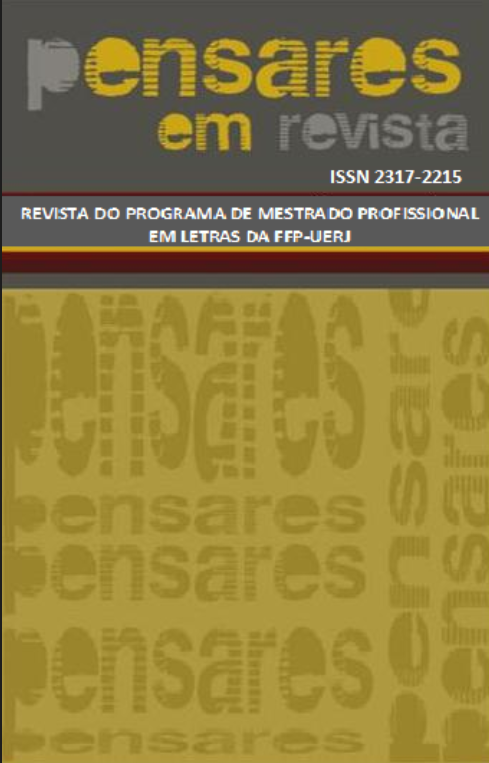A look at black literature with a decolonial bias:
implications for a critical literary literacy on the skoob platform
DOI:
https://doi.org/10.12957/pr.2023.74194Keywords:
Critical and literary literacy, Decolonial black literature, Skoob platformAbstract
This article discusses the role of decolonial literature, with an emphasis on literature produced by black women, as a prerequisite for the formation of critical literary literacy on the Skoob platform (2009), an open and free virtual reading social network: to discuss the use of digital technologies as a resource for pluralizing the use of language in a conscious and ethical way; foster the development of critical thinking as a contribution to the decolonization of knowledge and language; and, finally, argue in favour of critical literary literacy on the Skoob platform, as a way of elevating black Literature. Methodologically, we relied on netnographic research, Kozinets (2014), analyzed under the premises of the interpretivist qualitative approach, in the concepts of decolonial studies, Guerrero Arias (2010), multilearning, New London Group (2021), Rojo (2009) and critical literacies. We inferred that given the multiplicity of communication channels and media, combined with multiculturalism, the use of spaces such as the Skoob (2009) reading social network helps to strengthening the plurality of discourses, favoring engagement in critical literary literacy. It was also found that the Skoob platform shows pedagogical potential for the practice of multiliteracies by "giving a voice" to the reader, who through their interlocutions and positions construct the meanings of their literary experiences, based on the use of multiple languages, contributing to ratifying the place of Black Literature, as well as suggesting agency in literary choices through a dialogical and critical discursive space.
Downloads
Published
How to Cite
Issue
Section
License
Os Direitos Autorais dos artigos publicados Pensares em Revista pertencem ao(s) seu(s) respectivo(s) autor(es), com os direitos de primeira publicação cedidos à Pensares.
Os artigos publicados são de acesso público, de uso gratuito, com atribuição de autoria obrigatória de acordo com o modelo de licenciamento Creative Commons 4.0 adotado pela revista.
The Copyright of the published articles in Pensares Journal belong to the respective author(s), with the rights of first publication assigned to Pensares.
The published articles are of public access, free of charge, with attribution of obligatory authorship according to the Creative Commons 4.0 licensing model adopted by the journal.
A Pensares em Revista está licenciada com uma Licença Creative Commons Atribuição 4.0 Internacional.
Pensares Journal is licensed under a Creative Commons Attribution 4.0 International License (Creative Commons Atribuição 4.0 Internacional).


